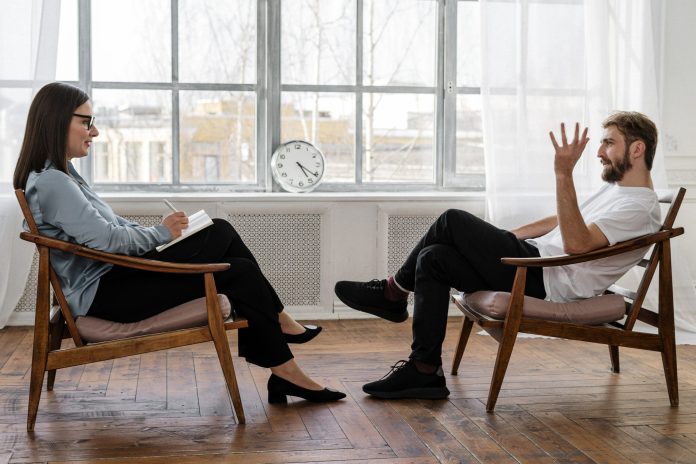By Vanessa Mangru // SWNS
NEWS COPY W/ VIDEO + INFOGRAPHIC
The average American sees three therapists before finding their perfect match, according to a new study.
The survey of 2,000 adults examined their mental health journey and found most respondents believe it’s essential to find a therapist who can cater to their individual needs (64%).
However, a third worry about the difficulties of finding someone who understands them. Nearly three-quarters of those seeking mental health care said searching for the right therapist overwhelms them (72%).
And even when they find a good match, it can be hard to open up. Americans estimate that they’ll visit their therapist five times before opening up about their mental health.
For many, finding a good therapist means looking for someone who specializes in a field that relates to them (42%), is nearby/easy to access (42%) and has enough years of experience (41%).
Another 38% of respondents prioritize finding a therapist in their budget, and similarly, 37% look for options that are specifically covered under their insurance.
While half of Americans would scour online reviews for a therapist with the qualities they prefer (51%), 54% would rather consult with their primary care doctor for recommendations.
Conducted by OnePoll in partnership with Mindstrong for Mental Health Awareness Month, the survey also revealed that seven in 10 people said receiving mental health help would make them feel more at ease in life.
But 62% worry about being stigmatized for sharing their mental health status with others.
More than two-thirds of Americans believe society is too harsh when it comes to talking about mental health, to the point where more than half have felt embarrassed at the idea of asking for help with their mental health at some point (59%).
Other roadblocks people have encountered while seeking mental health care are finding a professional (36%), lack of support or fear of not getting good care (33%, each).
Two in three respondents are also concerned with not being able to get the right mental health care when they need it (67%). For example, restrictions that may come with seeing a doctor in person or waiting for an appointment.
“Stigma around mental health persists, and people in need are fearful of the implications of seeing a therapist or psychiatrist,” said Holly DuBois, M.D. and chief clinical officer at Mindstrong. “We know that ideal care is dynamic and meets people where they are.”
Most recognize that patience is key when working on their mental health since it’s a lifelong journey (64%).
However, a similar percentage are concerned that starting therapy or mental health medication means they’ll have to continue for an extended period of time (63%).
In terms of finding care, most believe some progress has been made, with 70% of people saying technology has made it easier than ever to seek a therapist who’s accessible.
More than half of respondents revealed they’d be open to virtual mental health care if it were at the same level of quality as in-person care (54%).
People see many benefits of virtual care, including the ability to attend the session remotely (50%), convenience (46%) and because of lower costs (45%).
Similarly, two in three Americans said they would feel less pressure when talking to their therapist over the phone or computer, allowing them to be more honest about their feelings and overall situation.
“Providing high-quality mental healthcare via telehealth closes the access gap while providing convenient care,” said Mindstrong CEO Michelle Wagner. “Our technology helps personalize care in transparent and authentic ways, helping people get better and stay better.”

